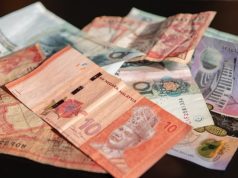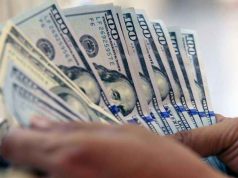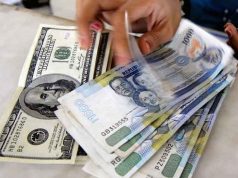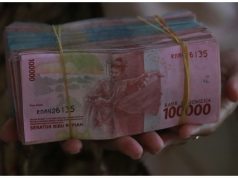
- South Korean won at lowest since March 2009
- Indonesian rupiah set for fourth straight weekly losses
- Indian rupee hits all-time low
The South Korean won dropped to a fresh 16-year-low and the stock market tumbled on Friday amid increasing political turbulence, while other emerging Asian currencies fell against a strong dollar in thin year-end trade.
Stocks in Seoul <.KS11> fell as much as 1.7% in their third session of losses. The won <KRW=KFTC> shed up to 1.2% to weaken to a fresh low of 1,486.7 per U.S. dollar, its lowest since March 2009, as South Korea’s acting president faces an impeachment vote later in the day.
The potential impeachment threatens to further intensify the ongoing political crisis in the country, as the Constitutional Court meets for its first hearing on suspended President Yoon Suk Yeol’s short-lived martial law declared on Dec. 3.
The won has lost nearly 13% this year and is the worst performing Asian currency.
Most other regional currencies also lost ground, with the Indonesian rupiah <IDR=> losing 0.4%, on track for its fourth straight weekly decline. China’s yuan was set to end the week near a 13-month low.
The Malaysian ringgit <MYR=> fell 0.2% on Friday, but remains the only Asian currency set to end the year higher.
The Indian rupee <INR=IN> weakened to an all-time low. The currency has hit record lows in every trading session this week, pressured by broad strength in the dollar.
The U.S. dollar <=USD> remained pinned at a near two-year peak against major peers, after the Federal Reserve signalled slower than expected rate cuts in 2025. [FRX/]
“If the Fed does not cut in 2025, or turns more hawkish in an extreme case, this may cause more dollar strength against Asia currencies,” said Jeff Ng, head of Asia Macro Strategy at Sumitomo Mitsui Banking Corporation.
Higher U.S. rates and the dollar’s yield advantage could drive capital out of emerging markets while weakening their currencies.
“If the U.S. and global interest rate environment stays high and elevated, this means that the cost of financing or opportunity costs will be high, weighing down on EM asset outlook,” Ng said.
The Fed’s rate trajectory will also influence regional central banks’ rate outlook.
Last week, the Bangko Sentral ng Pilipinas cut rates, while central banks in Indonesia, Thailand, and Taiwan kept rates steady.
On Friday, equities in Kuala Lumpur <.KLSE> rose 1.1% to their highest level since early November, while those in Singapore <.STI> and Taiwan <.TWII> rose 0.3% each.
HIGHLIGHTS:
** Indian economy to grow at around 6.5% in FY25, government says
** Philippine central bank extends 2% to 4% inflation target through 2028
** China’s November industrial profits narrow decline
| Asian stocks and currencies at 0417 GMT | ||||||
| COUNTRY | FX RIC | FX DAILY % | FX YTD % | INDEX | STOCKS DAILY % | STOCKS YTD % |
| Japan | <JPY=> | +0.24 | -10.51 | <.N225> | 1.59 | 20.12 |
| China | <CNY=CFXS> | +0.00 | -2.73 | <.SSEC> | 0.29 | 14.55 |
| India | <INR=IN> | -0.15 | -2.55 | <.NSEI> | 0.38 | 9.70 |
| Indonesia | <IDR=> | -0.37 | -5.23 | <.JKSE> | -0.05 | -2.90 |
| Malaysia | <MYR=> | -0.18 | +2.57 | <.KLSE> | 1.05 | 12.10 |
| Philippines | <PHP=> | +0.19 | -4.29 | <.PSI> | -0.50 | 0.88 |
| S.Korea | <KRW=KFTC> | -0.64 | -12.92 | <.KS11> | -1.38 | -9.76 |
| Singapore | <SGD=> | -0.04 | -2.96 | <.STI> | 0.26 | 16.38 |
| Taiwan | <TWD=TP> | +0.02 | -5.98 | <.TWII> | 0.32 | 30.07 |
| Thailand | <THB=TH> | -0.01 | +0.12 | <.SETI> | 0.21 | -1.07 |








